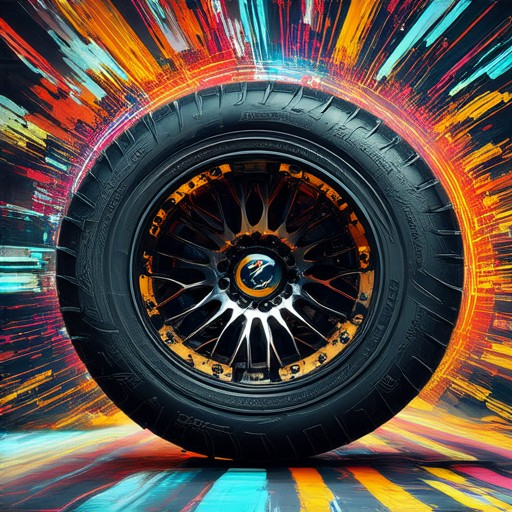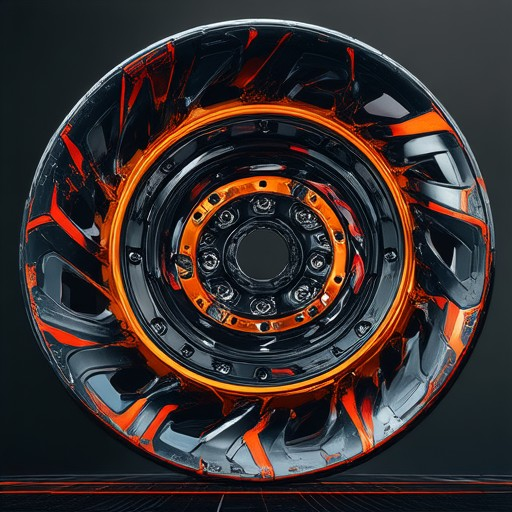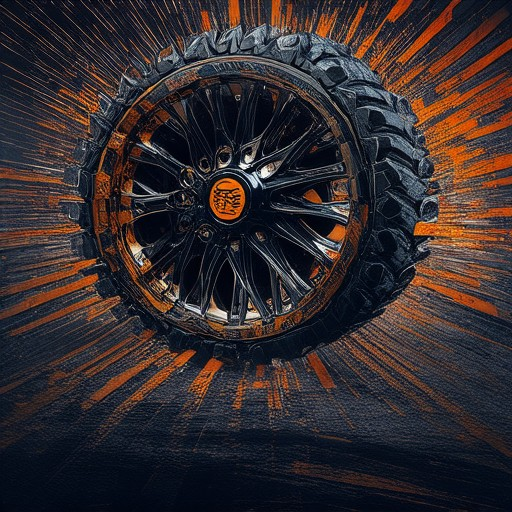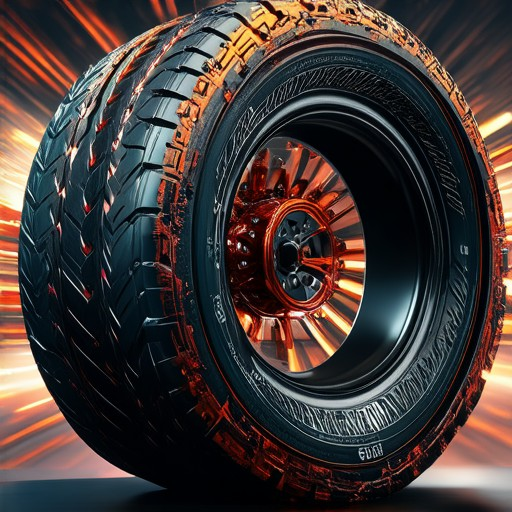When it comes to ensuring the longevity and efficiency of your operations, the choice of wheels plays a pivotal role, particularly in demanding environments where durability and performance are paramount. For those navigating the complexities of heavy-duty applications, selecting the right wheels with high strength is not merely a decision—it’s a strategic move that can significantly impact productivity and safety. Whether you’re managing a fleet of trucks, heavy machinery, or industrial equipment, understanding the nuances of wheel types, weight capacities, and material options becomes essential. This guide delves into the intricacies of high-strength wheels, exploring everything from the strongest types of wheels to the best material options for heavy-duty casters. By equipping yourself with the knowledge to make informed choices, you can optimize performance while minimizing downtime, ensuring your operations remain efficient and reliable.
Key Takeaways
– Choose the right caster type for your application: Spindle casters for compact spaces, wheel casters for stability and durability, and plate casters for heavy-duty and even weight distribution.
– Understand weight capacity: Consider factors like material quality, proper installation, and environmental conditions to ensure your casters can handle dynamic and static loads safely.
– Differentiate between hard and soft casters: Opt for hard casters for rough terrain and heavy loads, and soft casters for smooth surfaces requiring superior grip.
– Consult Incubus Wheels for specialized solutions: Their range of high-quality casters and wheels caters to diverse needs, ensuring optimal performance and reliability in your heavy-duty applications.

Strongest Types of Wheels
The strength of wheels depends on various factors including material, construction method, and intended use. Here’s a breakdown of the strongest types of wheels available:
- Forged Wheels
- Flow Formed Wheels
- Alloy Wheels
- Mag Wheels
- Cast Wheels
Forged Wheels : These are among the strongest and lightest wheels due to their precision-crafted construction. Forged wheels are made through a process where metal is shaped and formed under high pressure, resulting in a dense and strong structure. They are ideal for high-performance vehicles and offer excellent durability against impacts and corrosion.
Flow Formed Wheels : Flow formed wheels are created by casting molten aluminum into a mold with precise patterns, allowing for a stronger and more consistent structure. This method creates wheels that are both lightweight and robust, making them a popular choice for racing and off-road applications.
Alloy Wheels : Alloy wheels are constructed using aluminum alloys, which are lighter and more resistant to rust compared to steel wheels. While they may not be as strong as forged or flow formed wheels, they are still durable and commonly used in many vehicles due to their balance of strength and weight.
Mag Wheels : Magnetic wheels use a unique magnetic attachment system that allows them to attach to vehicles without traditional bolts. While they are not necessarily stronger than other types, they offer versatility and convenience, particularly for customization purposes.
Cast Wheels : Cast wheels are mass-produced using molds, making them cost-effective and widely available. They are generally strong enough for everyday driving but may lack the premium strength of forged or flow formed options. They are often found on economy cars and trucks.
When choosing the strongest wheels for your vehicle, consider factors like weight, durability, and intended use. Forged and flow formed wheels are recommended for high-performance needs, while alloy wheels strike a good balance for everyday use. Visit our types of wheels page to learn more about each option and explore our collection.
How Much Weight Can Wheels Take?
Incubus Wheels are designed to handle significant weight, making them ideal for various applications. Generally, each Incubus Wheel can support a load of up to 200-300 pounds , depending on the specific model and usage conditions. This capacity ensures reliable performance on rough terrains and heavy-duty tasks.
To determine the appropriate load capacity for your setup:
- Calculate Total Load : First, identify the total weight your vehicle or equipment will carry, including cargo and additional accessories.
- Distribute Weight Evenly : Divide the total load evenly across all wheels to prevent overloading any single unit.
- Check Maximum Load Per Wheel : Refer to the Incubus Wheels owner’s manual or contact customer service for the exact load rating of your specific model.
It’s important to stay within the recommended weight limits to avoid issues like wheel damage or uneven tire wear. Always consult the manufacturer’s guidelines before exceeding these limits.
For further details on Incubus Wheels’ capabilities, visit our Caster Wheels page . Additionally, explore other top-rated options like Advantech Wheels and Racing Wheel Solutions for alternative solutions that may better suit your needs.

Best Material for Heavy Duty Casters
When selecting the optimal material for heavy-duty casters, several factors come into play, including weight capacity, durability, environmental conditions, and cost-effectiveness. Here’s a breakdown of the most suitable materials:
- Polyurethane : Known for its exceptional durability and shock-absorbing properties, polyurethane is ideal for handling heavy loads. It offers flexibility and resistance to wear and tear, making it suitable for rough surfaces.
- Iron Core : Iron core casters are renowned for their strength and stability. They excel in supporting heavy weights and provide long-lasting performance. However, they may rust in moist environments, necessitating proper care.
- Molded Nylon : Moulded nylon is a tough and lightweight material that offers excellent grip and prevents sliding. While it performs well under heavy loads, its longevity may vary compared to other materials.
- Cast Iron : Cast iron is a heavy yet strong option, perfect for bearing substantial weights. It boasts a long lifespan and can withstand rigorous usage, though it may increase overall equipment weight.
- Aluminum : Aluminum is a lightweight yet robust choice, offering corrosion resistance. It’s a good balance between strength and portability, though it may not be as durable as iron in extreme conditions.
Choosing the right material involves evaluating these factors against your specific application needs. For instance, environments prone to moisture may favor aluminum for its corrosion resistance, while extremely heavy loads may require cast iron or iron core casters for maximum durability.

What Are the Three Types of Casters?
Casters are essential components in various applications, offering versatility and functionality. Here are the three primary types of casters:
- Spindle Casters : These are compact and lightweight, ideal for small vehicles or equipment. They feature a spindle-shaped configuration, making them suitable for tight spaces and delicate surfaces.
- Wheel Casters : As the name suggests, these casters resemble traditional wheels. They provide stability and durability, making them perfect for heavy-duty applications and rough terrain.
- Plate Casters : These are flat and wide, designed for distributing weight evenly. They are commonly used in manufacturing and industrial settings due to their strength and load-bearing capacity.
Each type of caster serves distinct purposes, catering to different needs in automotive, industrial, and commercial contexts. At Incubus Wheels, we specialize in providing high-quality casters and wheels tailored to your specific requirements, ensuring optimal performance and reliability.
For more information on our caster options and other related products, explore our caster collection and discover how we can enhance your vehicle’s capabilities.
How Much Weight Can Casters Hold?
Casters are designed to support various weights depending on their type, installation, and usage conditions. Here’s a breakdown of factors affecting caster load capacity:
- Standard Caster Capacity : Most standard casters can hold between 200-300 pounds. However, this can vary based on the surface they’re used on, with carpeted floors typically allowing slightly more weight due to lower friction compared to hard floors.
- Swivel Casters : Swivel casters, commonly found on office chairs, often have a higher load capacity, potentially supporting up to 500 pounds. Their design allows for smoother movement, contributing to their ability to handle greater weights.
- Fixed Casters : Fixed casters, which don’t swivel, generally have a lower load capacity, often around 250-350 pounds. Their construction may limit their durability under heavy loads.
- Material Quality : Casters made from high-quality materials, such as metal, tend to be more durable and can support heavier loads compared to those made from plastic or cheaper materials.
- Installation and Surface Conditions : Proper installation is crucial. Incorrect mounting or uneven surfaces can reduce a caster’s effective load capacity. Additionally, rough or uneven terrain may further limit performance.
- Load Type : The difference between static and dynamic loads matters. Dynamic loads, which occur during movement, can place more stress on casters than static loads.
- Environmental Factors : Exposure to moisture, extreme temperatures, or corrosive substances can degrade caster performance and reduce load-bearing capacity.
- Certifications and Ratings : Look for certifications or ratings provided by manufacturers, as these can offer reliable guidelines for safe operation.
For precise information, always refer to the specific caster’s rating provided by the manufacturer. Consulting with a professional or reviewing the product documentation can help determine the safest and most efficient use of casters for your needs.

Understanding the Difference Between Hard and Soft Casters
When selecting the right caster wheels for your needs, it’s essential to understand the distinction between hard and soft casters. These variations cater to different surfaces and usage scenarios, ensuring optimal performance and durability.
- Hard Casters: Made from materials like polyurethane or rubber, hard casters are ideal for rough surfaces and heavy-duty applications. They provide excellent durability and can handle uneven terrain, making them suitable for both indoor and outdoor use.
- Soft Casters: Typically made from rubber or thermoplastic elastomers, soft casters excel on smooth surfaces. They offer better grip and control, reducing the likelihood of slipping, which makes them ideal for indoor use where stability is crucial.
Incubus Wheels understands the importance of choosing the right caster type for your specific needs. Whether you require the robustness of hard casters or the precision of soft casters, we have a wide selection tailored to meet your demands. Explore our collection today to find the perfect fit for your project or vehicle.
Learn more about Incubus Wheels’ hard casters and discover how they can enhance your experience with superior performance and reliability.
Explore our soft casters to experience the difference firsthand and see why they are a preferred choice for many.
Conclusion
Choosing between hard and soft casters depends on your specific requirements. Hard casters are best for rough surfaces and heavy loads, while soft casters provide exceptional grip on smooth surfaces. At Incubus Wheels, we offer a diverse range of options to suit every need, ensuring you find the perfect solution for your application.




0 Comments